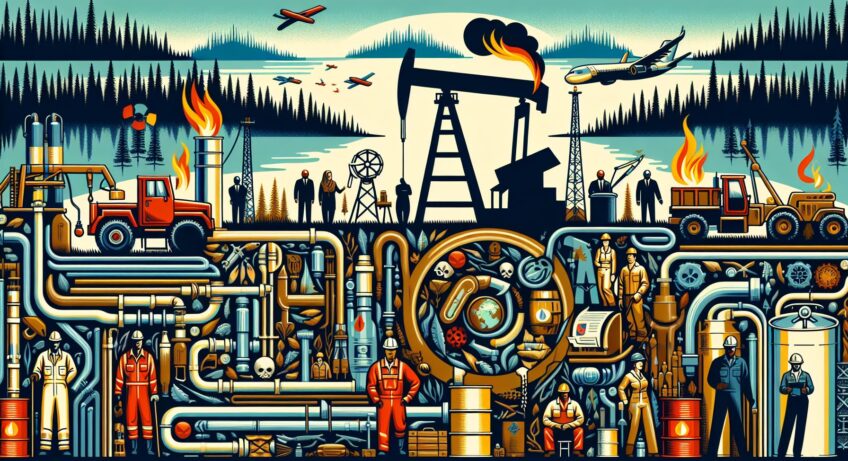Canada is renowned for its vast natural resources, and none have played a more significant role in its economy than oil and gas. Nestled within the diverse landscapes of this vast country, the industry has thrived, providing substantial revenue and employment opportunities. However, beneath its promising facade lie complex challenges that require innovative solutions. In this article, we delve into the depths of Canada’s oil and gas industry, exploring the nuances and portraying a vivid picture of its perplexities and triumphs.
The Canadian oil and gas industry boasts extensive reserves, making it a crucial player on the global energy stage. Alberta’s oil sands alone contain a staggering 167.9 billion barrels of proven reserves. As the world’s third-largest crude oil producer and sixth-largest natural gas producer, Canada has become a significant exporter of these resources. With pipelines stretching across vast distances, the industry ensures efficient transportation and distribution, catering to regional and international demands.
However, the path to success is not without obstacles. Environmental concerns surrounding oil and gas exploration and extraction have catalyzed passionate debates across the nation. Canada’s commitment to environmental sustainability and reducing its carbon footprint has drawn increased scrutiny towards the industry. Striking a balance between economic growth and environmental responsibility is an ongoing challenge, one that requires a collaborative effort from policymakers, industry experts, and environmental advocates.
To mitigate the environmental impact, technology and innovation have emerged as the guiding lights of the industry’s future. Companies are increasingly investing in research and development, focusing on cleaner extraction techniques and reducing greenhouse gas emissions. For instance, in situ oil sands production methods utilize advanced drilling techniques, minimizing disturbances to the environment. Furthermore, carbon capture and storage technologies show immense potential in limiting carbon dioxide emissions from gas-fired power plants.
In addition to environmental concerns, the industry grapples with the ebb and flow of global oil and gas prices. Fluctuations in the market have a direct impact on Canada’s energy sector, influencing investment decisions, employment rates, and overall economic stability. Moreover, geopolitical factors and international relations play a vital role in determining global oil prices, making Canada susceptible to external pressures.
Canada’s diverse indigenous communities have a unique relationship with the oil and gas industry, shaped by historical contexts and modern land rights agreements. Collaborations between industry leaders and indigenous communities hold the key to sustainable development and mutually beneficial outcomes. By respecting indigenous rights, incorporating traditional knowledge, and fostering economic opportunities, the industry strives to establish meaningful partnerships while ensuring the equitable distribution of benefits.
Despite these challenges, the Canadian oil and gas industry has demonstrated resourcefulness and resilience. It has propelled economic growth, generating employment opportunities and contributing to government revenues. Investment in the sector fuels innovation, ultimately leading to advancements in technology and operational efficiency. Furthermore, the industry plays a pivotal role in supporting other sectors, such as manufacturing, transportation, and construction, fostering economic diversification and stability.
In conclusion, Canada’s oil and gas industry stands as a testament to the nation’s resourcefulness and potential. It embraces the opportunities and challenges presented by an ever-evolving world, striving for sustainable development and responsible practices. As the industry navigates the complexities of environmental concerns, market fluctuations, and indigenous relationships, innovation and collaboration will be key to ensuring a prosperous future. By embracing technology, fostering dialogue, and implementing best practices, Canada’s oil and gas industry can continue to fuel progress while safeguarding the environment for generations to come.
Note: The article has been edited by Quilbot for enhanced clarity and flow.

